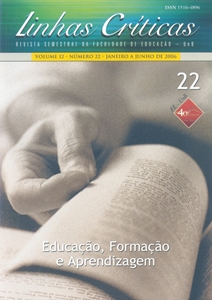Obstáculos políticos à concretização do direito à educação no Brasil
DOI:
https://doi.org/10.26512/lc.v12i22.3277Keywords:
Educação;, Direito;, Trajetória;, Estratégia;, Classe média;, Fracasso escolarAbstract
O objetivo do texto é investigar as razões históricas da defasagem entre duas dimensões do processo de concretização do direito à educação no Brasil: a efetivação do direito universal de entrada no sistema escolar e a realização integral do direito de saída do sistema escolar. A conclusão deste estudo é a de que a classe média é o principal agente da instauração e do desenvolvimento do direito à educação no Brasil; e, como as aspirações dessa classe social são socialmente limitadas, são conseqüentemente reduzidas as possibilidades de realização integral do direito universal à educação na sociedade brasileira, enquanto esta estiver conformada ao modelo sócio-econômico capitalista.
Downloads
References
BOURDIEU, Pierre. Escritos de educação. 3. ed. Petrópolis: Vozes, 1998.
CUNHA, Luiz Antonio. Educação e desenvolvimento social no Brasil. 3. ed. Rio de Janeiro:Francisco Alves, 1978.
NAGLE, Jorge. Educação e sociedade na Primeira República. São Paulo: EPU/Edusp, 1974.
PARO, Vitor Henrique. Administração escolar / introdução crítica. 11. ed. São Paulo: Cortez, 2002.
SINGER, Paulo. A formação da classe operária. 4. ed. São Paulo: Atual, 1992.
TEIXEIRA, Palmira Petratti. A fábrica do sonho / trajetória do industrial Jorge Street. Rio de Janeiro:Paz e Terra, 1990.
Downloads
Published
How to Cite
Issue
Section
License
Copyright (c) 2016 Linhas Críticas

This work is licensed under a Creative Commons Attribution 4.0 International License.
Authors who publish in this journal agree to the following terms:
-Authors maintains the copyright and grants the journal the right of first publication, the work being simultaneously licensed under the Creative Commons Attribution License which allows the sharing of the work with recognition of the authorship of the work and initial publication in this journal.
- Authors are authorized to enter into additional contracts separately, for non-exclusive distribution of the version of the work published in this journal (eg publish in institutional repository or as a book chapter), with acknowledgment of authorship and initial publication in this journal.
-Authorers are allowed and encouraged to publish and distribute their work online (eg in institutional repositories or on their personal page) at any point before or during the editorial process, as this can generate productive changes as well as increase the impact and the citation of published work (See The Effect of Free Access).



